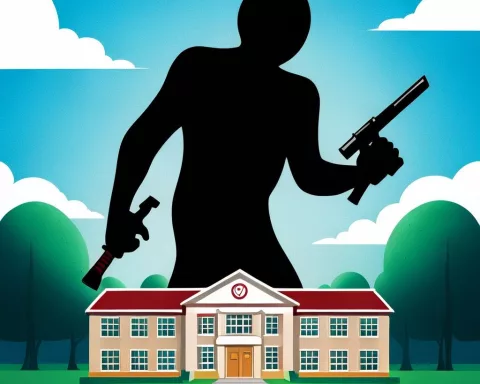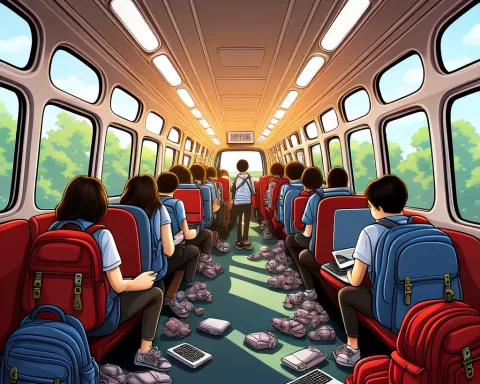The Western Cape Department of Education is facing a crisis, with a significant rise in student enrolment leading to challenges in accommodating the demand for education. Despite setbacks, the department has initiated an ambitious plan to construct new schools and classrooms in high-need areas, outperforming its average annual construction prior to the financial year of 2022/2023. However, budget cuts have hindered progress, leaving the department struggling to finalise contracts without guaranteed funding. Despite these challenges, the Western Cape remains resilient in its pursuit of equitable education for all.
How is the Western Cape Department of Education handling the influx of students?
The Western Cape Department of Education has faced significant challenges accommodating the rising demand for education in the region. Despite the setbacks, the department has initiated an updated plan to construct nine new schools and add 496 classrooms in high-need areas by 2024, outperforming its average annual construction prior to the 2022/2023 financial year, despite a slashed budget. As of November 22, 2023, the Western Cape has successfully placed 98.7% of learners for the 2024 academic year, with continued efforts for the remaining 1,568 applicants.
Crisis Amidst the Beauty: Western Cape’s Educational Struggle
Tucked within the picturesque landscape of South Africa’s Western Cape, the Department of Education is grappling with a significant crisis. Over the past half-decade, a striking growth in student enrolment has been observed, with approximately 19,000 additional learners registering each year. To accommodate this mass influx, the Western Cape government embarked on an audacious R2.9 billion infrastructure development plan in March 2023. The ambitious objective was to erect 21 new schools and supplement existing infrastructure with an extra 289 classrooms. This initiative, a continuation of the successful 2022 Rapid School Build programme, symbolised a momentous step towards meeting the soaring demand for education. This was evidenced by the construction of 788 new classrooms during the same period.
Funding Woes: The Financial Conundrum
However, the promising education progression ground to an unexpected halt in June 2023. This occurred when the National Treasury pulled the plug on provincial funding, leaving the Western Cape Education Department in a debilitating financial quagmire. The sudden cessation of spending disrupted infrastructure plans, leaving them hanging in uncertainty, incapable of finalising contracts without guaranteed funding. The financial crisis’s toll became evident when the Treasury faltered to fund the public service wage increase in full. Receiving a mere 64% of its entitled funds, the Western Cape Education Department found itself grappling with a shortfall of R537 million.
In a counter-move, the Western Cape government lodged an inter-governmental dispute to seek rightful reimbursement for the escalated wage bill. Adding fuel to fire, the Department of Basic Education slashed the Western Cape’s conditional grants by R179.4 million. This affected crucial areas, ranging from infrastructure and early childhood development to math, science and HIV education. The cumulative R716.4 million cutback hinders the province’s potential to sustain and develop schools and pay teachers, specifically highlighting a R248 million reduction in the infrastructure budget.
Navigating the Crisis: A Revised Plan
For the first time, budget cuts were implemented in the existing financial year, mounting pressure as the demand for learner placement intensifies. Despite these adversities, the Western Cape persists in its mission to broaden educational opportunities. The updated plan targets to construct nine new schools and add 496 classrooms in high-need areas by 2024. This plan, putting forth a total of 608 new classrooms, outperforms the average annual construction prior to the 2022/2023 financial year, even with a slashed budget.
As of November 22, 2023, the Western Cape has successfully placed 98.7% of learners (equivalent to 119,110 students) for the 2024 academic year, with continued attempts for the remaining 1,568 applicants. The department is urging parents to collaborate during this challenging time as it endeavours to guarantee timely placements. However, the province is bracing itself for thousands of late applications, which present a unique problem as their exact requirements remain a mystery. With schools operating at full capacity, parents filing new applications might face prolonged delays extending into the initial term of the year.
Resilience Amidst Adversity: The Ongoing Battle
In the face of these formidable challenges, the Western Cape remains undeterred in its pursuit. Regardless of the setbacks, the region’s resilience and dedication to education are unwavering. Nevertheless, the government’s struggle to balance budget cuts with rising enrolment serves as a stark revelation of the difficulties encountered by educational institutions worldwide. This highlights the pressing need for sustainable and equitable solutions, a lesson learned from the ongoing battle to secure education for all in the Western Cape.
-
What is the Western Cape Department of Education’s plan to accommodate the rising demand for education in the region?
The Western Cape Department of Education has initiated an updated plan to construct nine new schools and add 496 classrooms in high-need areas by 2024, outperforming its average annual construction prior to the 2022/2023 financial year, despite a slashed budget. -
How has the Western Cape government tried to address the financial crisis faced by the education department?
The Western Cape government lodged an inter-governmental dispute to seek rightful reimbursement for the escalated wage bill, and as a counter-move, the Department of Basic Education slashed the Western Cape’s conditional grants by R179.4 million. This affected crucial areas, ranging from infrastructure and early childhood development to math, science and HIV education. -
What is the impact of the financial crisis on the infrastructure plans of the Western Cape Education Department?
The sudden cessation of spending disrupted infrastructure plans, leaving them hanging in uncertainty, incapable of finalising contracts without guaranteed funding. The cumulative R716.4 million cutback hinders the province’s potential to sustain and develop schools and pay teachers, specifically highlighting a R248 million reduction in the infrastructure budget. -
What is the percentage of learner placement for the 2024 academic year as of November 22, 2023?
As of November 22, 2023, the Western Cape has successfully placed 98.7% of learners (equivalent to 119,110 students) for the 2024 academic year, with continued attempts for the remaining 1,568 applicants. -
How is the Western Cape Department of Education handling the late applications for the 2024 academic year?
With schools operating at full capacity, parents filing new applications might face prolonged delays extending into the initial term of the year. The department is urging parents to collaborate during this challenging time as it endeavours to guarantee timely placements. -
What is the Western Cape’s stance on the pursuit of equitable education for all?
In the face of formidable challenges, the Western Cape remains undeterred in its pursuit. Regardless of the setbacks, the region’s resilience and dedication to education are unwavering.












